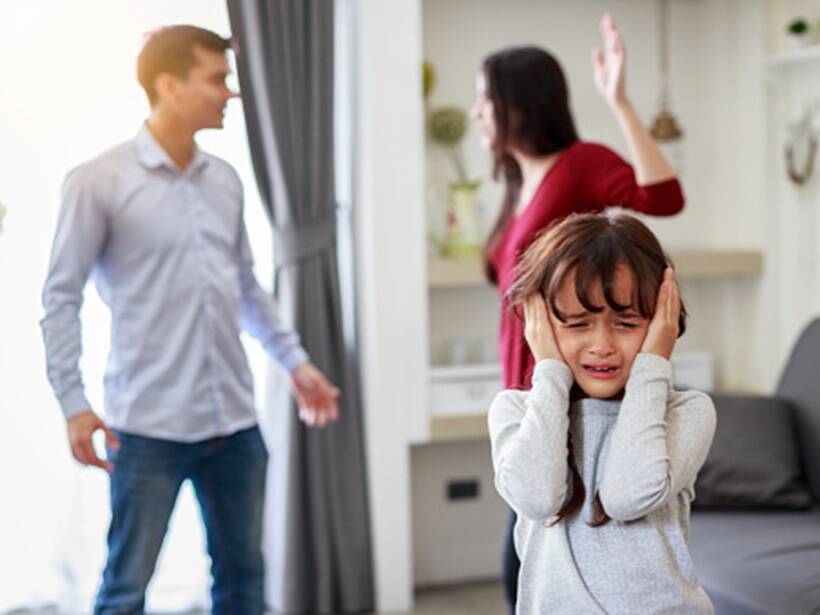Divorce is the dissolution of a marriage in simple terms. When one spouse files for divorce, they are stating that they no longer wish to be legally bound to their spouse in any form. Many times, even though they are suffering through mental and/or physical traumas, people opt to stay in bad relationships for the sake of their children. The child may suffer greatly as a result of the divorce. However, this does not imply that two people who are no longer happy with each other continue to torment each other along with the child. Even while each child’s reaction and response to their parents’ divorce is distinctive, there are some common patterns in their conduct.
Let’s take a look at some of the frequent behaviours that children of divorced parents exhibit from time to time.
1. Avoidance of social settings: Children whose parents are divorcing may find it difficult to relate to others and have fewer social contacts. They may worry if discussing their family’s predicament with others is a shameful thing to do, and they may avoid talking to their friends altogether.
2. Adapting to change becomes difficult: Children may be harmed as a result of having to learn to adjust to change on a more frequent basis as a result of divorce. Changes like Shifting family relationships, new housing or living arrangements, schools, friends, and other factors may all have an impact. Children’s adjustment to divorce is heavily influenced by how their parents deal with it.
3. Academic Struggle: One of the repercussions of divorce on children can be noticed in their academic achievement due to this disruption in their daily attention. Children who are distracted are more likely to be unable to concentrate on their schoolwork. There are a number of possible explanations for this association, including the fact that children may feel neglected, unhappy, or distracted as a result of increasing parental conflict.
4. Roller coaster of emotions: While a child may initially feel depressed or sad as a result of the divorce, research shows that children who have experienced divorce are more likely to develop severe depression. Loss, anger, confusion, anxiety, the feeling of abandonment and a variety of other emotions may arise as a result of this change. According to a study conducted by A. Hoyt, L. Cowen, L. Pedro-Carroll & J. Alpert-Gillis in 2010, children of divorce were found to have higher levels of anxiety and depression than the other participants, and they also experienced more school adjustment issues in general. These findings highlight the need of preventing anxiety and depression in young divorced children through preventative interventions that take into consideration their vulnerability to anxiety and sadness.
5. Destructive and risky behaviour: Divorced parents’ children are more prone to participate in dangerous conduct including substance abuse and early sexual involvement. Alcohol and drug abuse, violent behaviour, and early sexual involvement are all possibilities. Children are bound to become worried, distant, or melancholy, may quarrel with classmates or strike out against the world. Children frequently blame themselves for their parent’s separation, which makes them feel extremely guilty and causes them to act out or harm themselves.
6. Lose faith in further relationships: The concept is that a child’s attitude toward partnerships, in general, may be influenced by a parent’s divorce. They may be less eager to commit to long-term partnerships. Divorce also teaches children that there are numerous alternatives to traditional family structures. Despite their best intentions to have stable relationships as adults, research has shown that children who have experienced divorce are more likely to divorce when they are in their own partnerships.
All of these effects can be seen in the child’s actions. It is critical that one of the parents notices them and speaks with the child about it. It is important that the child has the time to process the separation before it occurs. Parents should also be prepared with the logistics in order to provide all of the information to their children so that they are not constantly worried. It is critical to ensure that the child understands that they are not the cause of the parents’ divorce. Individual or family therapy could also be considered by parents as a way to avoid any resentment that may develop among family members as a result of the divorce. It may also be useful in assisting a professional in dealing with the circumstance. Another suggestion would be for parents to reassure their children by acknowledging their sentiments and encouraging them to express their concerns.
– Urveez Kakalia and Aakriti Mathur.

